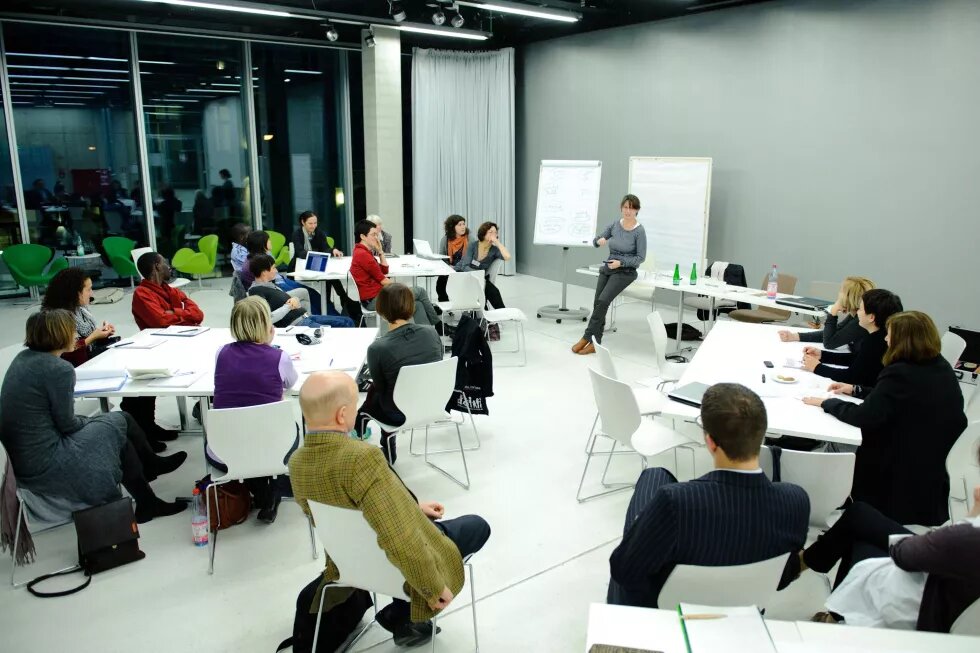
Ten years after the adoption of UN Resolution 1325 "Women, Peace and Security", the Gunda Werner Institute (GWI) of the Heinrich Böll Foundation in cooperation with the German Women's Security Council and Peace Women Across the Globe hosted an international conference with three main aims. In the first part of the conference, we took critically stock of the implementation of Resolution 1325, and asked about the relevance of this universal tool for specific country cases on the ground. In the second part, we looked beyond the mere implementation of the resolution and enhance the analysis of gender dynamics in conflict. We inquired both about sexualised violence and the construction of masculinities in conflict, as well as the abuse of feminist projects to legitimise armed intervention. In the third part, we discussed political strategies with major political stakeholders in order to place the problems discussed at the conference on the agenda of the international community.
Video: UN-Resolution 1325
Video: Coping with Crises, Ending Armed Conflict - Opening
Opening and Welcome
Barbara Unmüßig, President Heinrich Böll Foundation (hbs), Berlin
Video: Coping with Crises, Ending Armed Conflict - Introduction
Critical revision of the implementation of UN Res 1325 and future perspectives for (inter)national work at the EU and UN level
with:
Katariina Leinonen, Council of the EU, Human Rights Unit, Brussels (english)
Frauke Seidensticker, German Insitute for Human Rights, Berlin (german)
Video: Coping with Crises, Ending Armed Conflict - Results of the Workshops
Results and Recommendations of the Workshops
Facilitation: Nicola Popovic, Consultant, Germany
Achievements and resistance on the way to the implementation of 1325
Video: Coping with Crises, Ending Armed Conflict - 1325 and Future Perspectives
Panel Discussion:
Does research and work on masculinity undermine a feminist agenda?
Talking about the construction of gender roles includes a discussion about images of masculinity. It is often criticised that the feminist peace research suffers from this approach. How can both projects be connected wisely?
Input:
Paul Higate, Senior Lecturer, Dept. of Politics, University of Bristol, UK
Does Research on Masculinity Undermine a Feminist Agenda?
Panel Members:
Henri Myrttinen, International Affairs Consultant and Contractor, Berlin Masculinities, Conflict and UNSCR 1325
Monika Hauser, Director, medica mondiale, Deutschland
Facilitator:
Cilja Harders, Head of the Center for Middle Eastern and North African Politics, Freie Universität Berlin
Video: Coping with Crises, Ending Armed Conflict - Embedded Feminism
Panel Discussion:
"Embedded Feminism": Women's rights as justification for military intervention
with:
Nadie Al-Ali, School of Oriental and African Studies, University of London
Embedded Feminism- Women's Rights as a Justification for War
Bente Scheller, hbs Afghanistan
Barbara Lochbihler, European Green Party, Brussels
Helmut Ganser, Brigadier General (ret.)
Facilitator:
Barbara Unmüßig, President Heinrich Böll Foundation
Video:
Welcome by Gitti Hentschel, Director of the Gunda-Werner-Institute, Berlin
Impulses for Visions
Vision 1:
A military-free world is possible
With: Andreas Zumach, journalist and publicist, Geneva
Vision 2:
A gender-equitable world is possible
With: Ute Scheub, German Women's Security Council, Berlin
Vision 3:
The urgency of a feminist south
With: Anuradha Chenoy, Jawahar Lal Nehru University, New Delhi
Video:
Facilitator:
Petra Bläss-Rafajlovski, German Women's Security Council, Berlin
Henning von Bargen, Gunda-Werner-Institute
What are the most important conclusions of workshops and fora? Which strategies can be examples of best practices for other cases? What questions remain open? What demands do we address to politics?
Video:
Men and women in conflict management -- Strategies, requests, visions: which answers can politics provide?
Critical Input:
Barbara Unmüßig, President hbs, Berlin
with:
Kerstin Müller, Foreign Policy Spokesperson of the Alliance 90/The Greens Parliamentary Group, Berlin
Petra Bläss-Rafajlovski, German Women's Security Council, Berlin
Katelijn de Nijs, Belgian EU Presidency